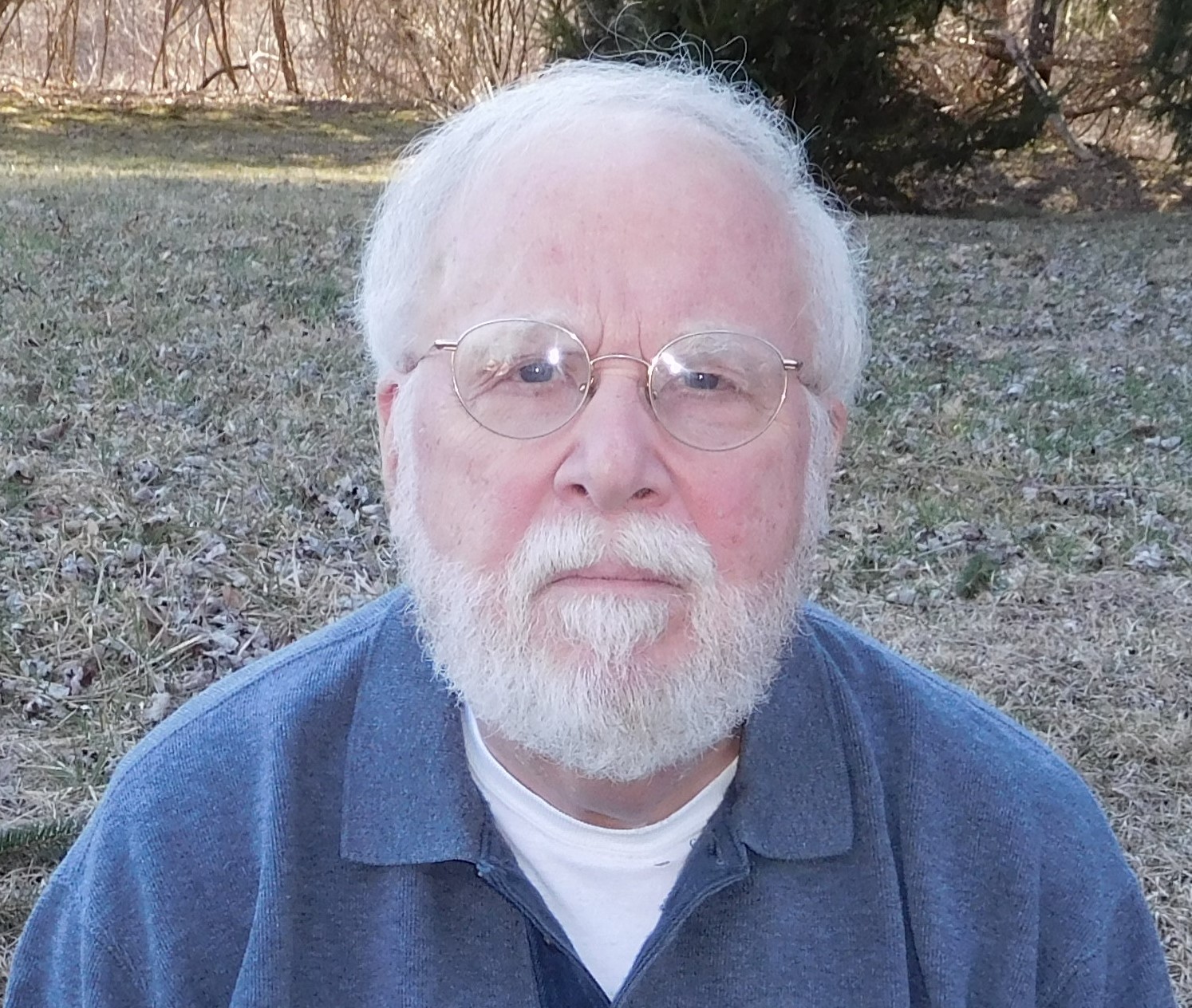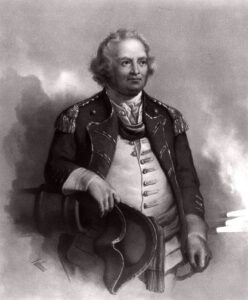In family history research, we often glean valuable information from genealogies published in the late nineteenth and early twentieth centuries, the period when genealogical publishing was enjoying its first real heyday in the United States. For my family, a standard resource is the 1913 genealogy John Grow of Ipswich/John (Groo) Grow of Oxford by George W. Davis, a retired U.S. Army general whose mother was a Grow.[1] Like many other pioneering genealogists of his day, Davis was a relentless researcher and a meticulous compiler of data – and for years I looked upon his work with a respect bordering on awe. Only recently did I discover that he deliberately sanitized the historical record to present Grow family members in the most favorable light possible.
The first warning sign came while I was researching my family’s Revolutionary War military service. In his genealogy, Davis highlighted the war record of Ebenezer Grow (1755-1827) of Pomfret, Connecticut, claiming that Ebenezer “marched … to Boston on the occasion of the Lexington Alarm in 1775,” was “commended for gallantry at the battle of Long Island” in 1776, and continued to fight as a soldier in the Continental Army until the end of the revolution in 1783.[2]
Davis also claimed that Ebenezer was involved in a famous military incident in February 1779, when General Israel Putnam and 150 American soldiers were surprised by 1,500 British troops outside an Episcopal church in Greenwich, Connecticut. The church was situated on the crest of a hill that descended steeply to the valley floor below, and to avoid the tiring climb up the spiraling road that led to the summit, the congregation had placed 70 broad stepping-stones on the hillside leading directly to the church. Nearly surrounded and with British dragoons closing in, Putnam made a spectacular escape by plunging down the steep precipice on horseback under heavy British gunfire.[3] According to Davis, Ebenezer Grow “rode with his chief down the stone steps at Greenwich.”[4]
Nearly surrounded and with British dragoons closing in, Putnam made a spectacular escape by plunging down the steep precipice on horseback under heavy British gunfire.
That Ebenezer served in the revolution from 1776 onward is verifiable. But after exhaustive research, I could find no evidence that he was recognized for gallantry at Long Island or that he accompanied Israel Putnam on his daring escape at Greenwich. It’s possible that Davis, with his military background, had access to records that are now lost or that I was unable to find. Ebenezer, however, made no mention of battlefield commendations or acts of bravery in his postwar applications for a Revolutionary War pension, despite the fact that a documented record of heroism would have lent powerful support to those requests.
In a letter to the pension office verifying Ebenezer’s military service, one of his commanding officers – Col. Thomas Grosvenor of Pomfret, who knew him well – said nothing about any military exploits but instead described him simply as “a person somewhat deranged in Mind by turns.”[5] Davis, who cited the pension records as a source, chose to omit that detail in favor of unverifiable references to Ebenezer’s military valor.
Omissions of a more glaring nature can be found in Davis’ genealogical profile of Ebenezer’s brother William Grow (1749-1830), the first minister of the Grow Hill Baptist Church in Hampton, Connecticut. In a vaguely worded reference to a 1783 church crisis, Davis wrote that William Grow was “excluded” from the church after unspecified “charges” were brought against him stemming from his “relations with another member.”[6] In actuality, the church records – which Davis cited as his source – provide a detailed account of the crisis, relating that William (who was married with three daughters at the time) had fathered an out-of-wedlock child with an unmarried young woman in the congregation (Eunice Abbott) a month earlier, and that in response the church had voted to “reject Elder William Grow” as ”Either our Elder or a brother” after finding him “gilty [sic] of the Sin of whoredom or fornication.”[7] To protect the Grow family name from embarrassment, Davis simply omitted the salacious details from his account.
I’m grateful to live and write in a period when genealogical standards have progressed to a point where we can acknowledge our ancestors’ flaws and human failings without embarrassment -- and where we no longer feel the need to protect our families’ honor by air-brushing the inevitable blemishes from the family record.
Notes
[1] John Grow of Ipswich/John (Groo) Grow of Oxford (Washington, D.C.: Privately printed by the Carnahan Press, 1913; repr. Salem, Mass.: Higginson Book Company, n.d.), 78-80.
[2] Ibid., 40.
[3] Col. David Humphreys, An Essay on the Life of the Honorable Major-General Israel Putnam: Addressed to the State Society of the Cincinnati in Connecticut (Middletown, Conn., 1794), 164; Susan Jewett Griggs, Folklore and Firesides of Pomfret, Hampton and Vicinity (Abington, Conn.: Privately published, 1950), Pomfret section, 104; John Niven, Connecticut Hero: Israel Putnam (Hartford: American Revolution Bicentennial Commission of Connecticut, 1977), 82.
[4] Davis, John Grow of Ipswich, 40.
[5] Ebenezer Grow Pension File, No. 36566, “Revolutionary War Pensions,” online database at footnote.com.
[6] Davis, John Grow of Ipswich, 36-37.
[7] Hampton Baptist Church Records, 1770-1853 (ms.974.62/H182b), Connecticut State Library, Hartford, 1: 45-47.
Share this:

About Michael Grow
Michael Grow, a retired history professor at Ohio University and a longtime NEHGS member, is the author of John Grow of Ipswich, Massachusetts and Some of His Descendants: A Middle-Class Family in Social and Economic Context From the 17th Century to the Present (Amherst, Mass.: Genealogy House, 2020).View all posts by Michael Grow →
